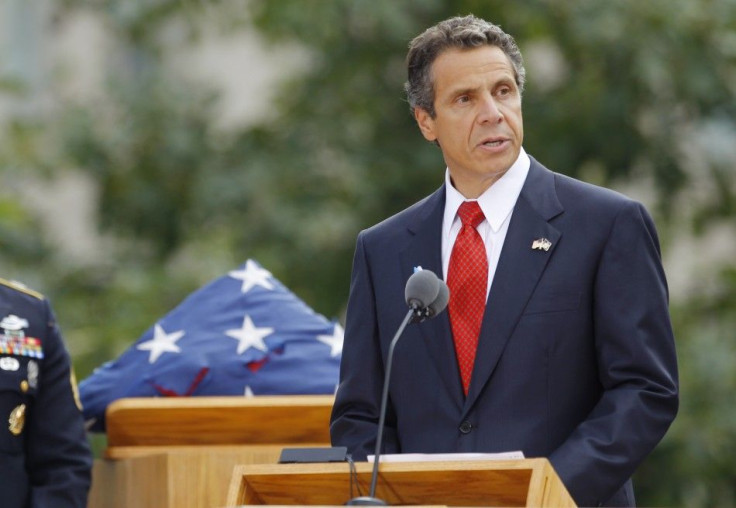Cuomo State of the State 2012: Top Five Things New York City Residents Should Know

New York Gov. Andrew Cuomo gave his 2012 State of the State address Wednesday afternoon, and there were several items that apply direct to the future of New York City.
From new protections for tenants to campaign finance and immigration reform, Cuomo's initiatives aim to make life better for New York city residents.
Here's a quick overview of the top five things NYC residents in particular should take away from Cuomo's 2012 State of the State:
1. Convention Center Plan: Gov. Cuomo announced a groundbreaking proposal to build the country's largest convention center in New York City. He said the Jacob Javits Center - which is only the twelfth-largest center in the nation - has grown too small for the New York City market. As such, he said a massive convention center is slated to be built in Ozone Park, Queens at the site of the Aqueduct Racetrack. At 3.8 million square feet, it would trump the McCormick Place center in Chicago as the largest in America. The project, which is being pursued along with the Genting Organization gaming development company as part of its $4 billion overhaul of the Aqueduct site, would make New York the number-one convention site in the nation, Cuomo said.
2. Tenant Protection Unit: After years of ceaseless cries from city officials for the state to do more to protect tenants' rights, Cuomo announced in his Wednesday address that he is launching a Tenant Protecting Unit. Too many tenants have been abused for too long and it stops now, he declared in the announcement. Housed in New York State Homes and Community Renewal, the unit will proactively enforce landlord obligations and impose strict penalties for failure to comply with New York's rent laws, he said. It will specifically target landlords who may be involved in fraud aimed at deregulating apartments, owners who are gouging tenants, and building owners who are not providing basic services like heat and water.
3. Public Campaign Financing: The Guv specifically called out NYC for having a public campaign financing system that really works. Despite other major issues like gerrymandering and voter fraud (and the fact that the city's richest resident was able to pay his way into Gracie Mansion), Cuomo said the state should follow the city's model for paying for campaigns. New York City's public financing system provides a good model for statewide reform. The system has helped tio increase the number of overall contributors - and especially the number of smaller donors - in city elections, he said.
4. Jacob Javits Center Plans: Cuomo said we will master plan the Javits Convention Center Site, by following the Battery Park City model. The development of Battery Park City under a master plan has brought housing, hotels, museums and more than 10 million square feet of prime office space to the far southwest sliver of Manhattan. Cuomo said in his Wednesday speech that such a plan is underway to bring more than $2 billion in private development to create a new 21st century neighborhood for the West Side near Javits. The redevelopment of that area presents a bold future for the environs of a center that is larger than both the World Trade Center and the United Nations. It will also complement the ongoing revitalization of the rest of the West Side from Hell's Kitchen to Hudson Yards and Moynihan Station.
5. Office for New Americans: We must also live up to the promise of the Lady in our Harbor and ensure that New York remains a land of opportunity, Cuomo declared Wednesday, invoking the image of the Statue of Liberty in a call to create an Office for New Americans. The office would provide assistance for high-skilled and educated immigrants looking to obtain licenses and other credentials needed to get good jobs, and will also help provide education and training to immigrants who need it. Furthermore, the office will help immigrants navigate the path to citizenship and encourage them to participate in civic and economic life.
© Copyright IBTimes 2024. All rights reserved.





















